Filter by

Entity Alignment
This open access book systematically investigates the topic of entity alignment, which aims to detect equivalent entities that are located in different knowledge graphs. Entity alignment represents an essential step in enhancing the quality of knowledge graphs, and hence is of significance to downstream applications, e.g., question answering and recommender systems. Recent years have witnessed …
- Edition
- -
- ISBN/ISSN
- 978-981-99-4250-3
- Collation
- XI, 247
- Series Title
- -
- Call Number
- -
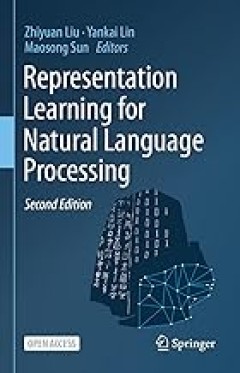
Representation Learning for Natural Language Processing
This book provides an overview of the recent advances in representation learning theory, algorithms, and applications for natural language processing (NLP), ranging from word embeddings to pre-trained language models. It is divided into four parts. Part I presents the representation learning techniques for multiple language entries, including words, sentences and documents, as well as pre-train…
- Edition
- -
- ISBN/ISSN
- 978-981-99-1599-6
- Collation
- -
- Series Title
- -
- Call Number
- -

Ignorance and Surprise: Science, Society, and Ecological Design
In this work, Matthias Gross examines the relationship between ignorance and surprise, proposing a conceptual framework for handling the unexpected and offering case studies of ecological design that demonstrate the advantages of allowing for surprises and including ignorance in the design and negotiation processes.OCLC-licensed vendor bibliographic record.
- Edition
- -
- ISBN/ISSN
- 9780262265911
- Collation
- 1 online resource (xii, 240 pages) :illustrations, maps.
- Series Title
- -
- Call Number
- -
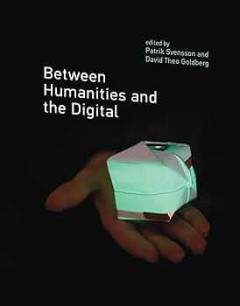
Between Humanities and the Digital
"Like most academic discourses, the Digital Humanities are a conversation in flux. Some would argue that the Digital Humanities are already a well-established field, pointing to the 20-year history of Humanities Computing. Others (me) see a new breed of academic with skills in both technology and the traditional humanities (the Platform Studies and Software Studies series), while others might i…
- Edition
- -
- ISBN/ISSN
- 9780262328364
- Collation
- 1 online resource (xii, 574 pages) :illustrations
- Series Title
- -
- Call Number
- -

Freud's Dream: A Complete Interdisciplinary Science of Mind
"A Bradford book."OCLC-licensed vendor bibliographic record.
- Edition
- -
- ISBN/ISSN
- 9780262277211
- Collation
- 1 online resource (245 pages) :illustrations
- Series Title
- -
- Call Number
- -
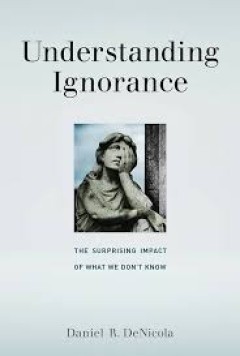
Understanding ignorance :the surprising impact of what we don't know
Ignorance is trending. Politicians boast, "I'm not a scientist." Angry citizens object to a proposed state motto because it is in Latin, and "This is America, not Mexico or Latin America." Lack of experience, not expertise, becomes a credential. Fake news and repeated falsehoods are accepted and shape firm belief. Ignorance about American government and history is so alarming that the ideal of …
- Edition
- -
- ISBN/ISSN
- 9780262341035
- Collation
- 1 online resource.
- Series Title
- -
- Call Number
- -

Research in Computational Molecular Biology
This book constitutes the refereed proceedings of the 19th Annual International Conference on Research in Computational Molecular Biology, RECOMB 2015, held in Warsaw, Poland, in April 2015. The 36 extended abstracts were carefully reviewed and selected from 170 submissions. They report on original research in all areas of computational molecular biology and bioinformatics.
- Edition
- -
- ISBN/ISSN
- 978-3-319-16706-0
- Collation
- -
- Series Title
- -
- Call Number
- -
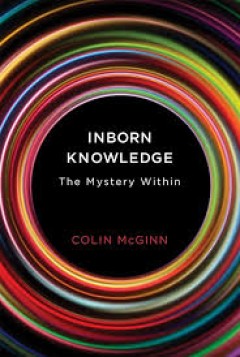
Inborn Knowledge: The Mystery Within
"In this book, Colin McGinn presents a concise, clear, and compelling argument that the origins of knowledge are innate that nativism, not empiricism, is correct in its theory of how concepts are acquired. McGinn considers the particular case of sensible qualities ideas of color, shape, taste, and so on. He argues that these, which he once regarded as the strongest case for the empiricist posit…
- Edition
- -
- ISBN/ISSN
- 9780262334488
- Collation
- 1 online resource (x, 137 pages)
- Series Title
- -
- Call Number
- -
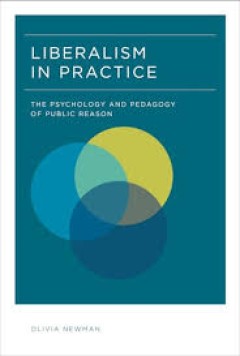
Liberalism in Practice: The Psychology and Pedagogy of Public Reason
An argument that draws on empirical findings in psychology to offer a blueprint for cultivating a widespread commitment to public reason.OCLC-licensed vendor bibliographic record.
- Edition
- -
- ISBN/ISSN
- 9780262327558
- Collation
- 1 online resource (xxxvi, 190 pages).
- Series Title
- -
- Call Number
- -

There are no facts :attentive algorithms, extractive data practices, and the …
"There Are No Facts examines the uncommon ground we share in a post-truth world. It unpacks how attentive algorithms and extractive data practices are shaping space, influencing behavior and colonizing everyday life. Articulating post-truth territory as an architectural and infrastructural condition, it shows how these spatial architectures of attention and datamining are in turn situated withi…
- Edition
- -
- ISBN/ISSN
- 026237188X
- Collation
- 1 online resource.
- Series Title
- -
- Call Number
- -
 Computer Science, Information & General Works
Computer Science, Information & General Works  Philosophy & Psychology
Philosophy & Psychology  Religion
Religion  Social Sciences
Social Sciences  Language
Language  Pure Science
Pure Science  Applied Sciences
Applied Sciences  Art & Recreation
Art & Recreation  Literature
Literature  History & Geography
History & Geography